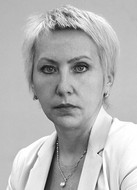Psycho-emotional and psychosomatic status test rates in boxing
Фотографии:
ˑ:
Teoriya i praktika fizicheskoy kultury №3 2018, pp.83-85
PhD, Associate Professor M.E. Guzich1
PhD, Associate Professor I.P. Grekhova1
1Surgut State University, Surgut
Objective of the study was to obtain psychosomatic status test rates under stresses typical for the modern competitive boxing sport. Subject to the study were 30 boxers split up into Experimental Group 1 (EG1, n=15) of qualifiers for the seasonal ranking competitions; and Experimental Group 2 (EG2, n=15) composed of the boxers who failed to qualify for the seasonal ranking events. The study was designed to match the both groups by the stress tolerance and psychosomatic performance rates, with the Holmes-Rahe Stress and Social Adaptability Rating Scale and the Giessen Complaints Inventory applied for the study purposes. The study found both of the groups, irrespective of their actual involvement in the competitive process, being exposed to the external uncertainty related stressors and facing the associating somatic problems. The boxers qualified for the top-ranking competitions, however, were tested with higher exposures to the stressors compensated by the relevant autonomic system disorders and associated with a variety of stress-coping problems.
Keywords: competitive performance, stress, psycho-emotional and psychosomatic status.
References
- Ivanov A.A. Psikhologiya chempiona. Rabota sportsmena nad soboy [Champion's psychology. Athlete's self-cultivation]. Moscow: Sport publ., 2016. Available at: https://www.litres.ru/aleksey-ivanov-10713225/psihologiya-chempiona-rabo....
- Malkina-Pykh I.G. Psikhosomatika: Spravochnik prakticheskogo psihologa [Psychosomatics. Practical psychologist's guide]. Moscow: Eksmo publ., 2005, 992 p.
- Metodika opredeleniya stressoustoychivosti i sotsialnoy adaptatsii Holmsa i Rage [Holmes and Rahe Stress and Social Adaptability Rating Scale]. Available at: http://psycabi.net/testy/629-test-na-stressoustojchivost-metodika-oprede....
- Milman V.E. Stress i lichnostnye faktoryi regulyatsii deyatelnosti [Stress and personality factors of activity regulation]. Stress trevoga v sporte: mezhdunar. sb. nauch. st. [Col. works 'Stress and anxiety in sport']. Moscow: Fizkultura i sport publ., 1983, pp. 24-46. Available at: http://psycheresurs.ru/d/294831/d/hanin-yu.l.-stress-i-trevoga-v-sporte-(sb.-mezhdunar.-statey).
- Morozov A.V. Psikhologicheskie problemy rossiyskogo sporta (navstrechu XXXI Letnim Olimpiyskim igram v Rio-de-Zhaneyro) [Psychological problems of Russian sports (to the XXXI Summer Olympics in Rio)]. Natsionalny psikhologicheskiy zhurnal, 2015, no. 3(19), pp. 81-90. Available at: http://npsyj.ru/articles/detail.php?article=6403;
- Weinberg R.S., Gould D. Osnovy psikhologii sporta i fizicheskoy kultury [Foundations of sport and exercise psychology]. Kiev: Olimpiyskaya literatura publ., 2001, 262 p.
- Fetisov V. Esli tak dalshe budet prodolzhatsya, nikogda nam Kitay s Amerikoy ne dognat [If nothing changes, we will never catch up with China and US]. Sport-Express. 22.08.2008. Available at: http://www.sport-express.ru/newspaper/2008-08-22/9_1.
- Tszen N.V., Pakhomov Yu.V. Psikhotrening: igry i uprazhneniya [Mental Training: Games and Exercises]. Moscow: Klass publ., 1999, 272 p. Available at: http://www.psichology.vuzlib.su/book_o213_page_5.html.
- Chudov M. Olimpiadu vyigraet tot, kto budet luchshe gotov psikhologicheski [The one who is better mentally fit will win the Olympics]. Available at: https://www.sovsport.ru/olympic_games/news/671183-maksim-chudov-olimpiad....



 Журнал "THEORY AND PRACTICE
Журнал "THEORY AND PRACTICE